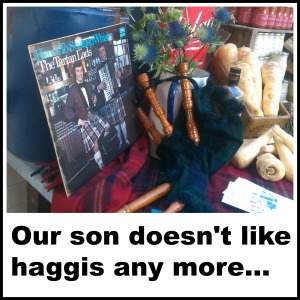 Last week saw the passing of the Irish poet Seamus Heaney, a man whose works were celebrated by many and led to him being awarded the 1995 Nobel Prize for Literature. It is hard to know what – if anything – it is possible to say in order to do justice to a man of such creative genius and eloquence. I don’t have the same insight and knowledge of many of those who have paid at times moving tributes to Heaney since his death last Friday, but have decided nevertheless to focus on what his poems meant to me within the context of exploring my own sense of cultural and national identity.
Last week saw the passing of the Irish poet Seamus Heaney, a man whose works were celebrated by many and led to him being awarded the 1995 Nobel Prize for Literature. It is hard to know what – if anything – it is possible to say in order to do justice to a man of such creative genius and eloquence. I don’t have the same insight and knowledge of many of those who have paid at times moving tributes to Heaney since his death last Friday, but have decided nevertheless to focus on what his poems meant to me within the context of exploring my own sense of cultural and national identity.
Heaney was from County Derry in Northern Ireland, although moved to Dublin in the early 1970s. My dad followed a similar trajectory, growing up in Armagh before moving to Dublin. Dublin is the city from which my mum originates and where my parents met. All this means that I have a connection with Ireland – both the North and the Republic – despite never having really lived there. Places like Armagh, Dublin and Westmeath are locations that I associate with fond memories of childhood holidays and I also enjoyed staying in Dublin during the summers of 2000 and 2001 when I did voluntary work for the Irish Section of Amnesty International.
The first time that I really engaged with the poetry of Seamus Heaney was during the 1996-7 school year when I was doing a school assignment for English known as an RPR (Review of Personal Reading). I had decided to focus on a selection of poems by Seamus Heaney and W.B. Yeats. Although I perhaps didn’t realise it at the time, I was probably somehow trying to connect (or re-connnect) with my roots .

Edinburgh, Scotland
Growing up, I’d always thought of myself as Scottish as Scotland was where I was born and where I’d always lived (apart from a year in San Jose, California in 1982-3). However, I did start to think in my teens about how things might have been different if my parents had not left Belfast in the early 1970s. This wasn’t something tinged with any sort of regret on my part but more a sense of wonder.
On occasion, I also became aware that others in Scotland didn’t see me as being Scottish (…and also that some people in Ireland definitely saw me as being Scottish!). When I was applying to go to university, the places that appealed to me most were all in England. I didn’t have my heart set on leaving Scotland. I just wanted to experience somewhere new and exciting that was a bit further from home. After noticing that I hadn’t signed up for a talk in school by a visiting speaker about applying to Scottish universities, I remember that a teacher once said to me ‘but you’re not really Scottish anyway’.
I wouldn’t say that I was personally offended but I did think it somewhat odd that the teacher presumed that they knew how I felt about my own nationality or sense of national identity. In fact, I’m not entirely sure what I think of it myself and don’t feel the need to quantify my comparative sense of attachment to Scotland or Ireland (be that the island of Ireland, Northern Ireland or the Republic). I was actually tempted to write something like ‘a bit confused’ when I was asked to describe my sense of national identity in the equality monitoring section of form that I filled in when enrolling on a Welsh course a few years ago.
In reading Heaney (and also Yeats), I was fascinated by their own relationships with their respective Irish homes. One of the reasons that I was drawn to Yeats was sentimentality stemming from the fact that he was from Sligo, the same county in the west of Ireland as my maternal grandmother. In the writings of Heaney, I was particularly interested in the gentle and often beautiful way that he put into words the complexities and tensions that have been part of the history of Ireland over the last century and especially Northern Ireland during his own lifetime. The assignment that I produced was something of which I felt proud due to not just getting a good grade but feeling that I had done something that was meaningful on other levels.
Scotland does of course have its own history of poets and reciting poems by Robert Burns in the weeks leading up to Burns’ Night (25th January) was an annual occurrence in primary school. Eating the traditional haggis, however, was not an annual occurrence on 25th January at home. This owes more to being brought up by vegetarian rather than Irish parents.
For those of you who have not come across haggis before, it is a dish that is traditionally composed of a sheep’s entrails that are wrapped in a sheep’s stomach and cooked in a mixture that also contains oatmeal, spices and onions. Thankfully, a vegetarian version was invented in 1984 to coincide with the launch of the Scottish poetry library.

Lille, France
Whilst living in France from 2002-2004, I would frequently return to Leeds where I was registered for a Masters degree that I was studying by research whilst teaching English at a university in Lille. I would often give a vegetarian haggis to the friends with whom I stayed during my visits back to Leeds by way of a thank you. I also remember returning to Lille with a bag full of vegetarian haggises in January 2003 in preparation for a Burns’ Night get together to which I invited French, Irish and American friends.
For me, this perhaps somewhat unconventional Burns Night was about sharing food as much as sharing culture, an excuse to invite round some friends and socialize rather than perform a traditional ritual. I did, however, look out the Burns poem ‘To a Haggis’ that it is customary to read before eating the beast (…for some say that the haggis is really an animal equipped with two short inside legs and two long outside legs so as it can run round mountains in circles).
As I’ve never felt that I possess the ideal accent for reciting Burns poetry, much of which is written in Scots dialect, I decided to pass a piece of paper with the poem on it around the room and get everyone to read a few lines. This was both challenging and entertaining, especially as even native speakers of English are likely to struggle to pronounced (or indeed understand) some of the words used by Burns. I did, nevertheless, also print out a ‘Queen’s English’ version of ‘To a Haggis’ as well as a French translation.
When moving to Wales was a possibility rather than a reality, I had already started to explore where I’d be able to purchase vegetarian haggis. When I had travelled from Leeds to one interview, I remember texting my then flatmates a message along the lines of ‘this place is great, I’ve just found a health shop that sells veggie haggis’. One of the responses was ‘you’re not exactly selling it to me’. In the area where I now live, I regularly order sufficient supplies of vegetarian haggis in the weeks preceding Burns’ Night from the local health shop. Indeed, the staff there often ask me in early January if I’m going to be placing another order for vegetarian haggis.
Now that I’m a dad, I’m not sure if our son will show any signs of interest in the poetry of Heaney and Yeats or indeed vegetarian haggis. After all, he may not feel any particular attachment to Ireland or Scotland given that he was born in Wales. As I mentioned in a previous post entitled My first football season as a dad, our son would technically be eligible to play football for Wales, England, Scotland, Northern Ireland or the Republic of Ireland, just as I remain eligible to represent Scotland, Northern Ireland and the Republic of Ireland at football and I believe also Wales at rugby and England at cricket. As yet, I have been cruelly denied due to a lack of sporting talent.

North Wales
What I think that I have been provided with by the poems of Seamus Heaney and W.B. Yeats, as well as vegetarian haggis, is something with which I have been able to identify in a positive manner. On one hand, Wales may not be Hen Wlad Fy Nhadau (literally, ‘Old Land of My Fathers’, the name of the Welsh national anthem). However, I was recently reading a book about Hen Wlad Fy Nhadau by Sion Jobbins that talked about how the anthem celebrated Wales’ poetry and culture in a positive and inclusive manner. That is something that I think is very important. No matter how my son ultimately perceives his own sense of national identity, I hope that he will find things that help him to identify with where he feels he is from, wherever that may be and whether or not these things are traditional.
What did you think of this article? What is it that you feel defines a sense of home and cultural identity? If you’d like to share your thoughts on this post, or Seamus Heaney, haggis and Hen Wlad Fy Nhadau in general, please feel free to do so via the comments section below. If you want to keep up with this blog, there are ‘Dad’s The Way I Like It’ pages on Facebook or Google+. Remember that you can also subscribe to this blog by entering your e-mail address in the box on the right of the screen.
 Two years ago, I asked an important question on this blog: will our son like haggis? Haggis is traditionally eaten on 25th January as part of Burns Night to celebrate the life and work of Robert Burns, Scotland’s national poet. Rather than serving up the traditional version of the dish that is composed of sheep’s innards cooked in a sheep’s stomach, I fed him a homemade vegetarian version that he enthusiastically (…and messily) consumed.
Two years ago, I asked an important question on this blog: will our son like haggis? Haggis is traditionally eaten on 25th January as part of Burns Night to celebrate the life and work of Robert Burns, Scotland’s national poet. Rather than serving up the traditional version of the dish that is composed of sheep’s innards cooked in a sheep’s stomach, I fed him a homemade vegetarian version that he enthusiastically (…and messily) consumed.



















































